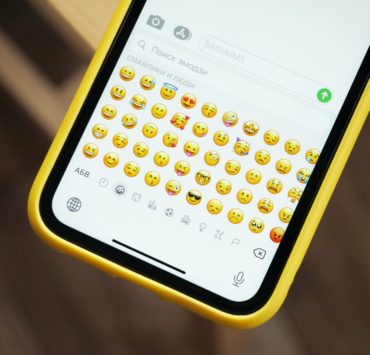
The Merriam Webster Dictionary defines it simply as: To pay attention to sound. Simple enough, right? Pay attention to sound and you’re a master listener.
Other definitions (also Merriam Webster) better convey the effort involved.
In truth, listening is hard work. And there are several barriers to reaching the state of mind needed to pay real attention and listen.
But it is doable.
In this thought, we consider three of the more prominent barriers to effective listening and explore different strategies for approaching them.
Availability
Renown American psychiatrist M Scott Peck famously said:
You cannot truly listen to anyone and do anything else at the same time.
This barrier makes it hard to absorb information. We use the analogy of a multi-lane highway to make this point. Imagine that effective listening requires five lanes for messages to get through, but because the mind is preoccupied, only two are available. Hence the messages are forced to fit into two lanes instead of five. This limited throughput makes it hard to decipher what is said. Dialogue can feel laborious in such conditions.
Effective listening requires attention. Specifically, exclusive attention on the dialogue. This type of attention ensures that the message and all the contextual cues that come with it are received. It requires a quiet state of mind. But alas, increasingly busy work and life schedules make attention a uniquely scarce resource. Ask any serious marketer.
So how can we remove this barrier to effective listening and start paying attention?
If you ever sat through a meeting you did not plan or hope for, you’ll appreciate how being removed can affect your ability to participate in a dialogue. This phenomenon plays out in many settings, but is especially commonplace at work, where collaboration is both necessary and difficult. People are on different schedules, with different priorities and workloads. Getting on the same page, ideal as it sounds, is (for the most part) far-fetched.
There is no silver bullet for scaling the availability barrier; it is part of work and life. But we can tame it by getting better at time management. Control over time makes it easier to accommodate the occasional, unplanned distraction. Distractions can and will occur. But being in control of your time means they won’t throw you off nearly as much. You can still afford to be present and pay attention, even while being distracted.
A Meeting Of Minds
Ever reached that moment in a dialogue where you realise that you are having two different conversations? Both parties are pulling the conversation in separate directions.
Listening when you are both speaking about different things requires mental fortitude. It also presents sub-par options. You can choose to set your interest aside and get behind the other topic of discussion at the expense of being heard. The alternative, self assertion, is more rewarding in the short term but can alienate the other person. It’s a zero-sum game.
My ideal response to this situation is to acknowledge it. Call it what it is. I use certain phrases to signal that more than one conversation is being had, creating an opportunity to decide on a topic. These phrases include:
- We might be talking about different things here. Or
- I hadn’t thought of it that way.
What’s important in an acknowledgement is that it identifies both topics clearly enough to convey that they are indeed separate discussions. This will ideally lead to a civilised negotiation of priorities. If there’s a connection between the two topics (which there typically is), it helps to articulate it.
This intervention brings the different perspectives and interests at play, raising the dialogue to a level of clarity that can accommodate such differences.
When Doubts Avail
This higher-level barrier to listening presents when the listener has some reservations, making it hard to receive a message. The proverbial pinch of salt comes into play.
A classic example of this is in politics, where candidates vying for office will say the needful to win votes, forgetting their promises soon afterwards. But reservations can (and often do) present in other, more nuanced settings.
It’s a delicate barrier to acknowledge because it could be perceived as an indictment of sorts. If the real issue is trust, it’s best to address it separately, perhaps at a different time. If not addressed, trust issues will stifle effective communication by casting doubt on everything that is said.
Sometimes, the reservation is of a different type. The message does not sound convincing. There are different reasons for this: logical inconsistencies, other information may contradict the communication, or the delivery may not inspire confidence. Whatever the reason, doubts over the truth of a message make it hard to hear.
You want to approach this barrier with a healthy balance of diplomacy and boldness. I ask questions that allow the speaker to speak directly to my reservations. I also preface by noting that the goal is to seek clarity. Most people welcome an opportunity to speak directly to reservations. Honest (and audacious) questions create these opportunities.
Final Thought
Listening is not the type of skill that shines brightly. Unlike eloquent speech and strategic leadership, great listening is hardly ever celebrated. But we all know and appreciate being listened to. It’s the virtue we want in our conversations – the very thing that makes people feel heard.
For its unassuming nature, listening boasts remarkable potency. It adds value at every turn, raising the quality of communication to new highs. It even adds to other virtues. A leader who happens to be an effective listener is likely to be regarded as a better leader for it. In like manner, an employee who is also a good listener is regarded as a team player.
As we celebrate ideas of empathy, inclusion, and (broadly) humanity, the quality of dialogue between us becomes that more important. Effective listening can help get us there. It holds much promise for both the individual and the collective.



